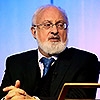The Method Of Managing The Future
 In the News (from The New York Times): “Political scientists are defensive these days because in May the House passed an amendment to a bill eliminating National Science Foundation grants for political scientists. Soon the Senate may vote on similar legislation. Colleagues, especially those who have received N.S.F. grants, will loathe me for saying this, but just this once I’m sympathetic with the anti-intellectual Republicans behind this amendment. Why? The bill incited a national conversation about a subject that has troubled me for decades: the government — disproportionately — supports research that is amenable to statistical analyses and models even though everyone knows the clean equations mask messy realities that contrived data sets and assumptions don’t, and can’t, capture.
In the News (from The New York Times): “Political scientists are defensive these days because in May the House passed an amendment to a bill eliminating National Science Foundation grants for political scientists. Soon the Senate may vote on similar legislation. Colleagues, especially those who have received N.S.F. grants, will loathe me for saying this, but just this once I’m sympathetic with the anti-intellectual Republicans behind this amendment. Why? The bill incited a national conversation about a subject that has troubled me for decades: the government — disproportionately — supports research that is amenable to statistical analyses and models even though everyone knows the clean equations mask messy realities that contrived data sets and assumptions don’t, and can’t, capture.
“It’s an open secret in my discipline: in terms of accurate political predictions (the field’s benchmark for what counts as science), my colleagues have failed spectacularly and wasted colossal amounts of time and money. The most obvious example may be political scientists’ insistence, during the cold war, that the Soviet Union would persist as a nuclear threat to the United States. In 1993, in the journal International Security, for example, the cold war historian John Lewis Gaddis wrote that the demise of the Soviet Union was ‘of such importance that no approach to the study of international relations claiming both foresight and competence should have failed to see it coming.’ And yet, he noted, ‘None actually did so.’ …
“Alas, little has changed. Did any prominent N.S.F.-financed researchers predict that an organization like Al Qaeda would change global and domestic politics for at least a generation? Nope. Or that the Arab Spring would overthrow leaders in Egypt, Libya and Tunisia? No, again.…
“The political psychologist Philip E. Tetlock began systematically quizzing 284 political experts — most of whom were political science Ph.D.’s — on dozens of basic questions, like whether a country would go to war, leave NATO or change its boundaries or a political leader would remain in office. His book “Expert Political Judgment: How Good Is It? How Can We Know?” won the A.P.S.A.’s prize for the best book published on government, politics or international affairs.
“Professor Tetlock’s main finding? Chimps randomly throwing darts at the possible outcomes would have done almost as well as the experts.
“These results wouldn’t surprise the guru of the scientific method, Karl Popper, whose 1934 book The Logic of Scientific Discovery remains the cornerstone of the scientific method. Yet Mr. Popper himself scoffed at the pretensions of the social sciences: ‘Long-term prophecies can be derived from scientific conditional predictions only if they apply to systems which can be described as well-isolated, stationary, and recurrent. These systems are very rare in nature; and modern society is not one of them.’”
My Comment: Indeed, our time is a time of insight, although, unfortunately, of gradual understanding and often belated. It remains to realize the biggest misconception, “the future is entirely predictable if we know how to build it.”
Humanity is inside the environment called “Nature.” Both Humankind and Nature are systems that have their own laws of behavior and development. Their mutual influence can and should be studied, and most importantly changed, by changing humanity.
This is possible by introducing the methods of “Integral education.” Even the limited application of this method will produce a clear positive response, both in society and in the surrounding Nature, and thus will become a distinct example and proof of the correctness and effectiveness of the “method of managing the future.”
[84786]
Related Material:
Dennis Meadows: On The Future
Distinctive Characteristics Of The Future Society
The Economic Crisis As A Gate To The New World







Discussion | Share Feedback | Ask a question